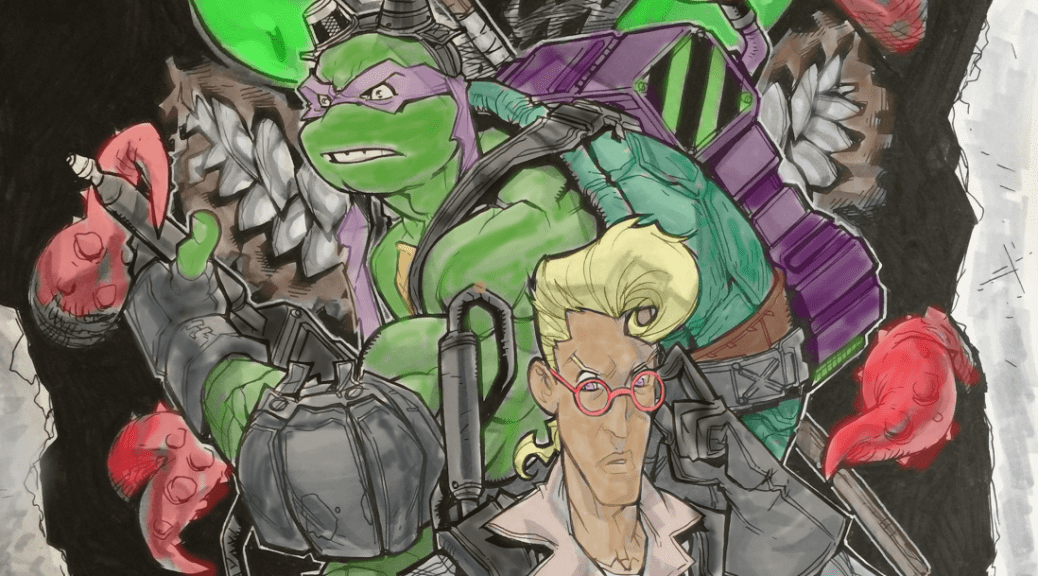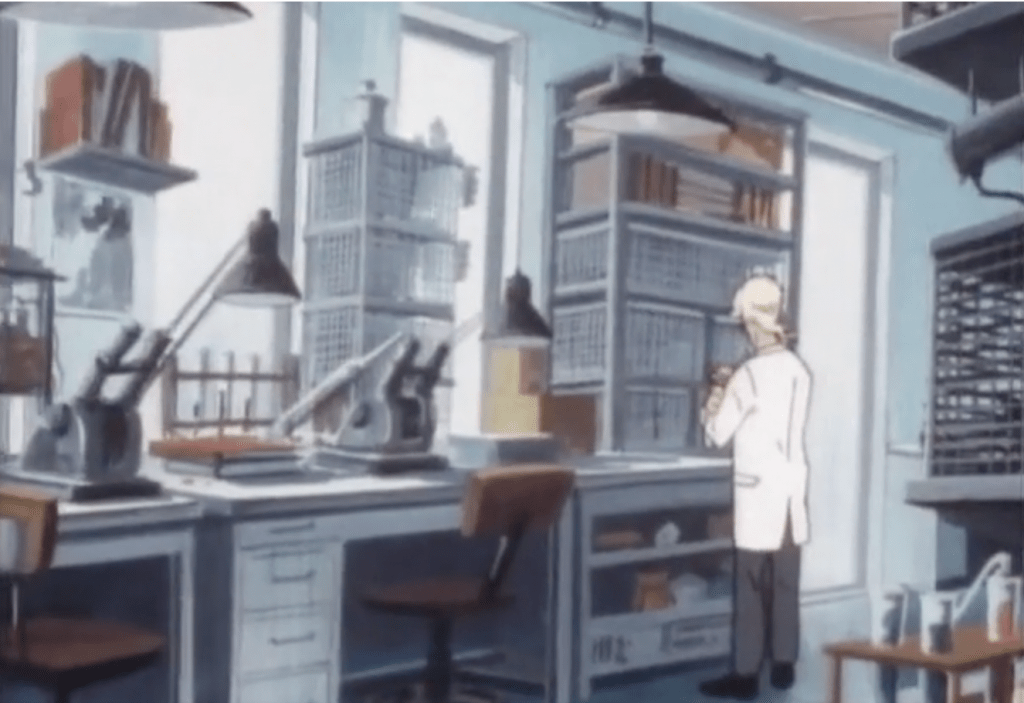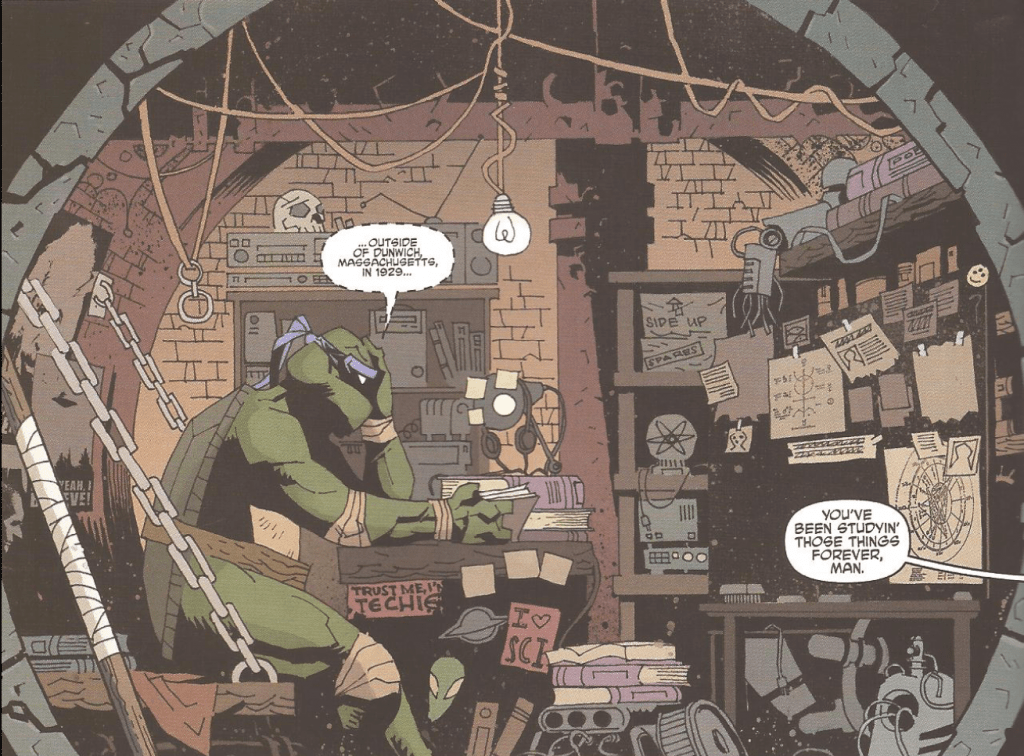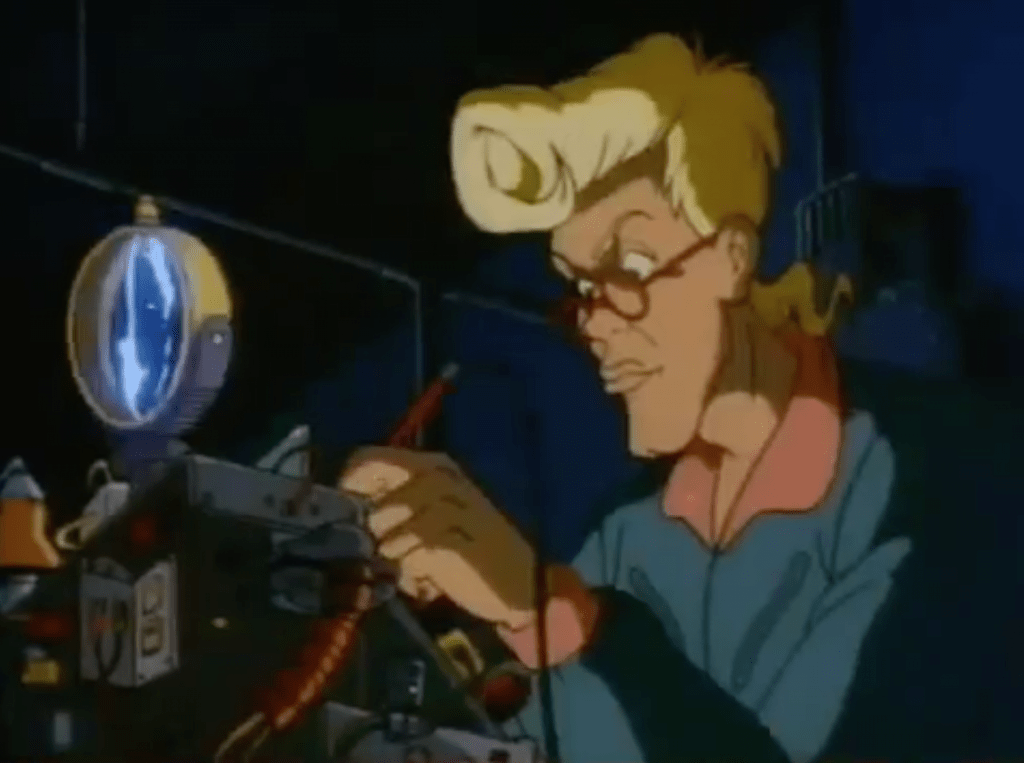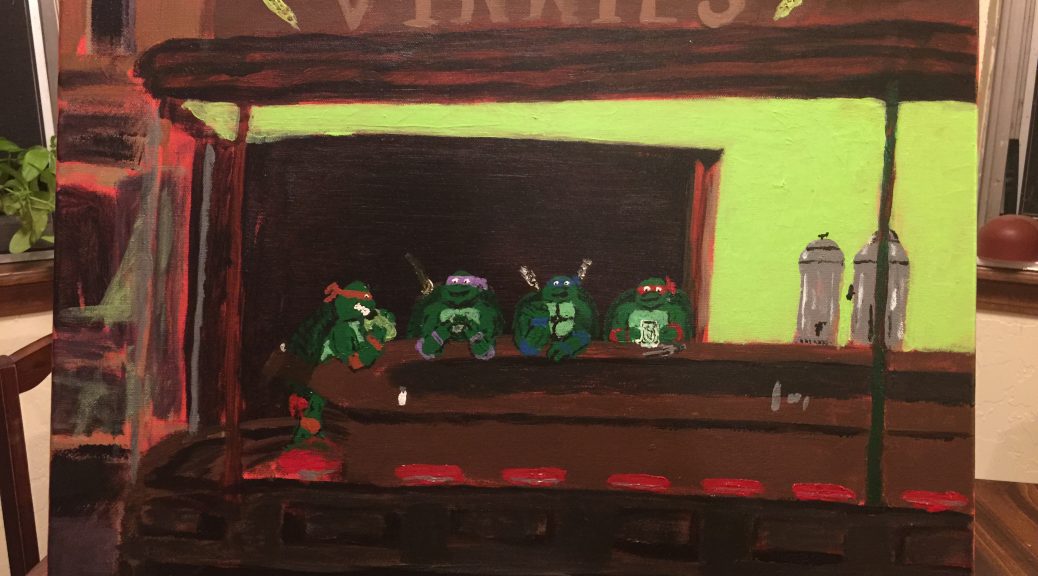I am not entirely certain, but I think a great part of it might have to do with what I associated “science” and “engineering” with when I was a kid. Even when I was little the idea of scientists in white coats was a bit weird. I had seen them made fun of in cartoons enough to appreciate a caricature. My grandfather worked in a hospital lab and for me such lab coats were for doctors. I never could put my finger on it until recently but as I have went back through the franchises I enjoyed as a kid, I finally realized who I wanted to be:
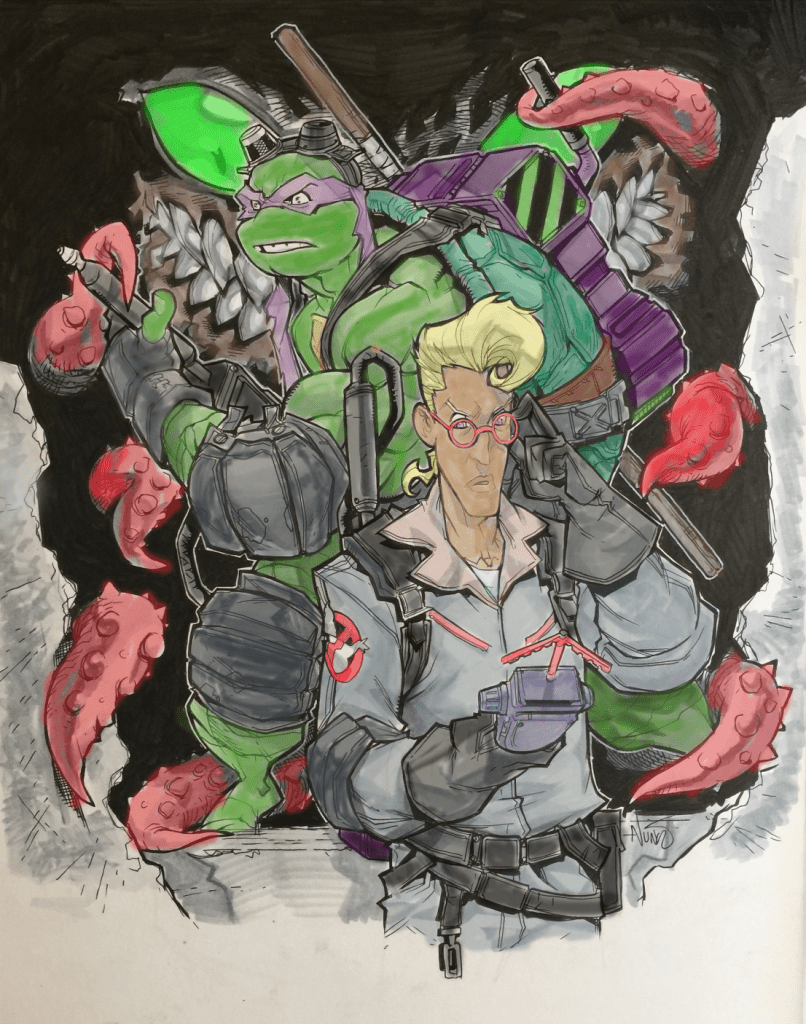
I know that they are basically the same person, barring the mutation thing. But that was it. Referencing in books, figuring out solutions and answers, the person that people went to for obscure things, that is who I have always wanted to be. In fact, it turns out that when I was 8 I tried to teach myself Assyrian and Sumerian because Egon knew them.
Now, here is the problem: There isn’t a path of study that can lead to that outcome. That outcome is not quantifiable nor does it really bring prestige or money to your alma maters and paters. As I continue to work towards finishing what has become a huge portion of my life I take solace in the fact that all of the extemporaneous stuff I have done through these years have led me more towards being the person I really wanted to be. Whether or not a Ghostbuster and a Ninja Turtle were the reasons I decided to get a PhD, they remain the noblest aspect of this entire experience.
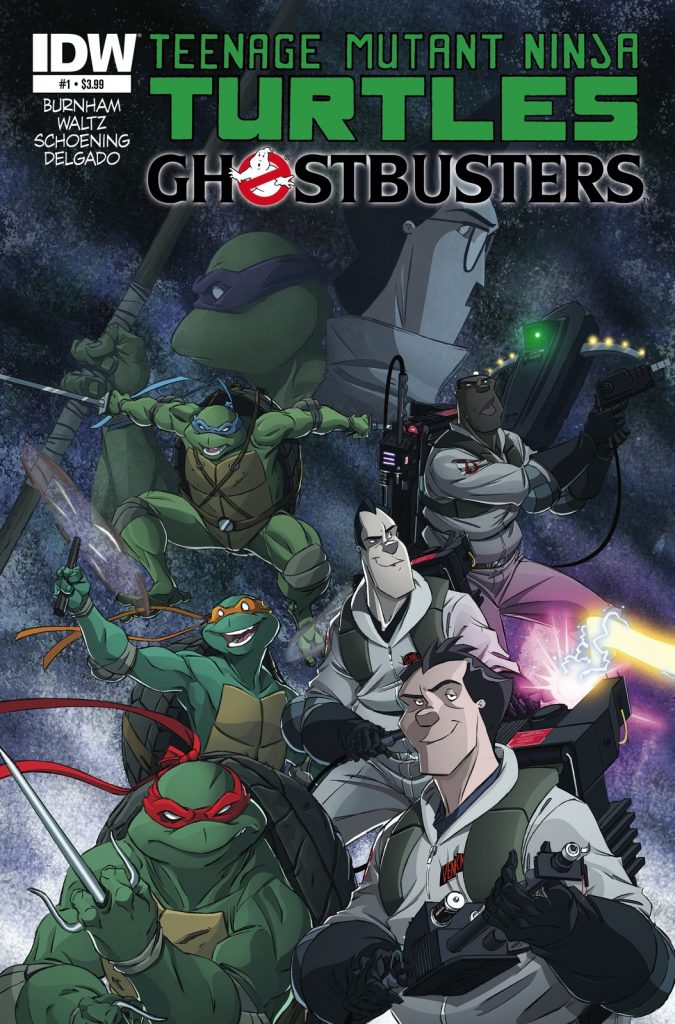
I have learned more about myself in the things I have done to stay sane during graduate school than I have about any topic I have studied. When it came time to pick a major for university I settled on Mechanical Engineering because I was good at math and mechanics. If you’ve taken courses in engineering you can see where this is going. I completed all my core courses my first year in college and realized that I didn’t want to be a career engineer in the sense that we were learning it. I wanted to design and build things, not manage button pushing operations. There is a perfect example of this in Egon’s life in an episode of The Real Ghostbusters: “Cry Uncle”
Real GB #19 Cry Uncle by clist007
In “Cry Uncle” Egon’s uncle shows up and reminds Egon that he said he would come work for him at Spengler Laboratories. There Egon would get to do “real” science. Once at Spengler Labs, Egon has his white coat, and is tasked with feeding the research rats and mice. When he admitted it wasn’t what he expected, Uncle Cyrus explained there are no small jobs in research.
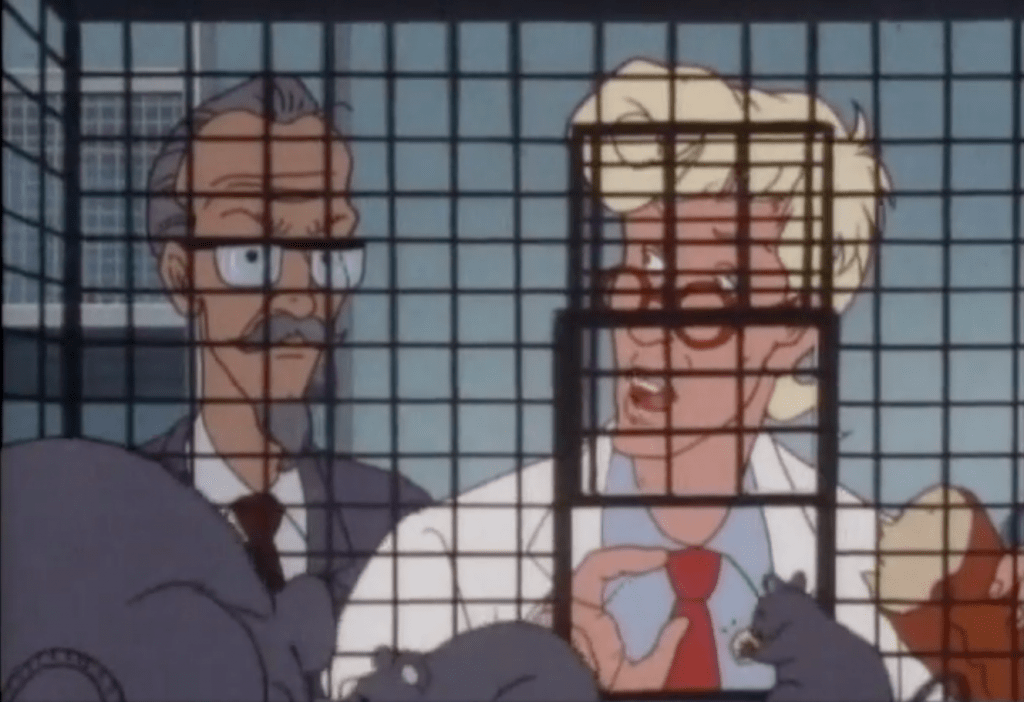
There isn’t inherently a problem with going into a field you are good at, especially if you are interested in it, but for me it was extremely limiting in the scope of my expectations for college. Such expectations continue to shape my opinions of higher education. I think the first thing I found odd was that the way our classes parsed out on the rubric I would be a senior taking freshman speech. Nothing built on anything else. Even the Engineering courses, which were only offered every other semester or so, wanted info in and were built on the premises that you passed or dropped out.
When I went back 5 years later I tried my hand at a broader field: Anthropology. I took every course my university offered and enjoyed them all. I did field work in Belize with another University and ran the gamut of geology towards that degree. Issues of being color blind and terrible mineralogy courses dropped me out of that certification (although I still practive the paleo and science outreach that I learned there) and ended up with a history degree. That itself is just as problematic because everything is formulaic and most of the people at the top hate everyone and have painted themselves into such tight “intellectual” corners that they wouldn’t dare step out of their offices to help someone even if they could.

I even completed an advanced degree in History. Then moved on to combining what I had done and what I thought I wanted to do. History of Science. I worked on another MA, which was worse than History because of the way our coursework is arranged. I still wanted to know more. Not more of one thing, but more in general. There were loose ends that needed to be tied up. So I reached out and ended up taking graduate level hours in Art History and Biology. As I have worked through all the stories I want to tell, and then figuring out how to appease the Academy and still get to write for the audience I want to engage with, I realized that I still want to know it all, and I want to be able to use that to help people answer questions and solve problems.

 I still want a lab and a workshop. I doubt I will ever build a nuclear accelerator or a portal device, but with such a practical environment, who knows. I think that this is one of the reasons I have gravitated towards museum exhibits. Aside from presentation and engaging the public with collections (and collecting) there is the technical aspect of getting the displays built, arranged, and installed. Practical needs that people ask you do do.
I still want a lab and a workshop. I doubt I will ever build a nuclear accelerator or a portal device, but with such a practical environment, who knows. I think that this is one of the reasons I have gravitated towards museum exhibits. Aside from presentation and engaging the public with collections (and collecting) there is the technical aspect of getting the displays built, arranged, and installed. Practical needs that people ask you do do.
I think the best thing about all of this is that it took years of advancing schooling to get back into comic books only to find what I study and write about was there all the time. That isn’t to say I write about mutations or ghosts, but a huge swath of my work is science and popular culture, and how the public engages with science. As for my dissertation, it will compare early American Naval and Army expeditions in their scope and treatment of the scientists (naturalists) and artists as were full expedition members. The first one, The United States Exploring Expedition (U.S. Ex.Ex), was in many ways undertaken due to John Symmes’ insistence and marketing that the Earth was hollow.

Even my PhD advisor admitted that my niche might be in being a generalist.

